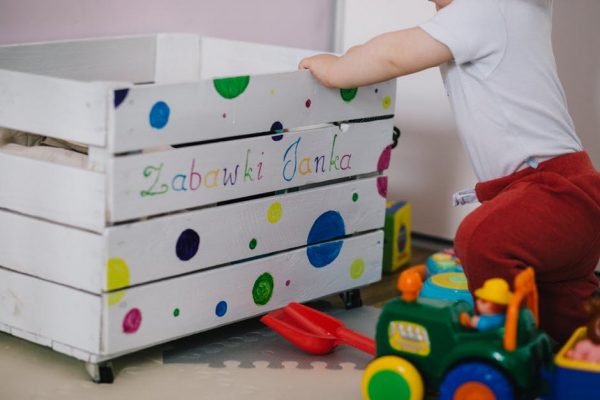**COVID-19: this article is to help you stay well whilst staying home with children.
While everyone is experiencing a sudden change in their lives and daily routine, it is the parents among us who are put under even more pressure as they balance staying home with children with their full-time job, health worries, and financial concerns, all while caring for the vulnerable members of the family too. Just like the NHS workers on the front line, we also view parents as the unsung heroes of this difficult period and that’s why we wish to help as much as we can.
This has been a really challenging time for families as we near the three-week mark since lockdown and what’s worse, is that we don’t know how long this will go on for. This uncertainty can cause a great deal of anxiety and helplessness, so that’s why we’ve compiled this guide. To help you make your daily life feel as manageable as possible for you and your family, this wellbeing guide contains a lot of tips that you can easily implement into your days. Here’s how to cope with isolation and how to look after yourself and your family, all whilst staying home with children for the longterm.
Tips for coping with isolation
We are not meant to be stuck indoors and made to stay still, especially for so long, so this period is inevitably going to feel stressful at times. Always remember in those moments, that that’s okay. Things are incredibly rubbish and we need these bad days to let some of that negative emotion out so that we can have some good days.

Here are essential tips for coping with isolation:
- Keep a routine as much as possible – whether it’s your normal routine or a new one, stick to it every day. You might not think that making the bed, putting on clothes, washing your face and brushing your teeth is important, especially when you don’t have to do it, but it’s never been more important. Making a routine for your family will make them feel in control which is essential for their wellbeing during a time of such uncertainty. It can greatly reduce anxiety and helplessness and will give them some meaning to their day. For example, a meal plan might help to structure your days, breaking up the time and giving your family regular opportunities to gather together.
- Get outside where possible and exercise together every day – movement boosts our mood and helps us sleep, both of which are essential to wellbeing so make sure the family is active. This can be going for a walk in your allowed hour outside, playing football in the garden or joining in with the Joe Wicks exercise videos for children called “P.E. with Joe.” Remember, the government is currently advising that people can go outside with people they live with once a day for exercise – as long as no one in the household is showing symptoms or has a condition that means they need to isolate more strictly.
- Connect online with your family and friends – we are very social animals, so without being able to physically connect, we need to make sure that we are connecting virtually to promote our wellbeing and that of our vulnerable family members. Consider using free apps such as Whatsapp, Facebook, Facetime, Zoom, and Skype to help combat loneliness. You can even find online activities for your children to participate in too – such as science, yoga, dance etc – helping them stay entertained and giving you opportunities for a quick break.
- Spend quality time together as a family – whilst staying home with children for a long time is difficult plus the added stress of isolation on top of that, the last thing you need is to put even more pressure on yourself or your family. So just make the most of this opportunity for family time. Do activities together that help you bond such as playing games, cooking together, and reading at bedtime. Show interest in your children’s hobbies and learn a new skill together. Limit screen time and create a boredom jar! Fill it with pieces of paper containing their favourite indoor activities and any new ideas and let them pick one out in moments of boredom or struggle.
- Limit your exposure to social media and the news – this goes for both you and your family. Hearing constant negative news is really bad for our mental health and wellbeing, so take a step back from it. Dedicate one or two time slots in the day to check for any important updates and leave it there. You won’t miss anything by not constantly checking but it will make a massive impact on your ability to cope.

Tips for looking after yourself
There’s a reason why they say “put your oxygen mask on first before your child’s” in the flight safety speech, and that’s because you can’t take proper care of your children unless you care for yourself first. The same goes for isolation, sometimes your self-care needs to be the priority. Once you have taken some time to recharge and refuel, then you will have the strength and energy to take good care of everyone else.
Here are essential tips for taking care of yourself during isolation:
- Don’t be so hard on yourself – you don’t have to feel fine or normal, it’s okay to feel worried, stressed and anxious during this time. Pretending to feel different to how you actually feel is exhausting so try your best to accept it and to find healthy ways to let it go (e.g. exercise, meditation, mindful breathing or talking to someone).
- Keep a daily routine for you as well – routine is just as important for you as it is for your family so map out the best way to fit in school work with family time, exercise, meals, and your work and me-time. You won’t be able to follow this every day and change is avoidable but having some sort of structure in place will help you feel more grounded.
- Stay connected with your parents, your friends, and maybe even your children’s friends parents too – you may not feel like it a lot of the time but making the effort to speak to people will make you feel so much better afterwards. Keep in touch regularly with the people who make you happy and who lift you up.
- Take time out – it might be really difficult to find time for yourself when staying home with children but you really need to make your own self-care a priority. Your children need you to be at the top of your game so do something for you each day. Maybe it’s before they even get up or right after they’ve gone to bed. Whatever works for you, make time for that soak in the bath, for your exercise for that Netflix episode you want to watch or that book you want to read. Consider trying meditation or mindfulness too as this has huge benefits for your mental health. They have special courses for children too!
- Seek support and ask for help if you need it – keep in touch with your GP by phone or online if you need to, and make use of helplines and other organisations that may still be able to offer online or phone support. Your mental health needs to be a priority so it’s okay if you’re finding it hard – as long as you ask for help.
- Do not compare yourself to others – everyone manages differently so try not to compare yourself to what other families are doing and the way they are handling this. All this does is make you feel like you’re doing something wrong. Avoid any negative (and unnecessary) feelings by listening to your gut – what do you feel is right for you and your family?
- Remind yourself that you are doing your best – as a parent, you can only do so much. You will get frustrated and stressed sometimes, you will break down and you will need some time for yourself. All of this is normal and it’s okay. You don’t have to be superman juggling a full school curriculum for your children whilst doing your work and trying to keep life normal. It’s not. You can only do your best at this time so remind yourself of that often.

Tips for looking after your family
It’s going to be a challenge having everyone inside for so long and there will be arguments. This is inevitable but there are things that you can do to lessen this occurrence and to keep everyone as well as possible during isolation.
Here are essential tips for looking after your family during isolation:
- Listen to each of your children and find out what will help them as individuals – if you need more support, read our blog: Top Tips for Keeping Your Children Well During Self-Isolation.
- Respect your child’s boundaries (especially with teenagers) – although finding ways to connect and spend time together is important during this time, personal space is important too. Try not to be on top of each other 24/7 and if your child doesn’t feel like talking, let them know you’re there and wait until they’re ready.
- Be patient with each other – encourage patience during this time and try to get everyone to focus on gratitude. Helping them to see the positives in the situation will help them greatly in any future life challenges that they have.
Wellbeing should be the number one priority
As parents, you will often be thinking about your children’s health, wellbeing and feelings first – but remember you are just as important. Think back to that flight safety speech with the oxygen masks, only when you take care of your needs first can you continue to support your children.
This is going to be a really difficult and challenging time so don’t be too hard on yourself. Everybody’s wellbeing needs to be a priority now so that you all make it through this time as happy and healthy as you possibly can.

At Schoolhouse Daycare, we enjoy learning, encouraging confidence and we love life! If you think your child would enjoy life at Schoolhouse, then please do not hesitate to arrange a visit.
























